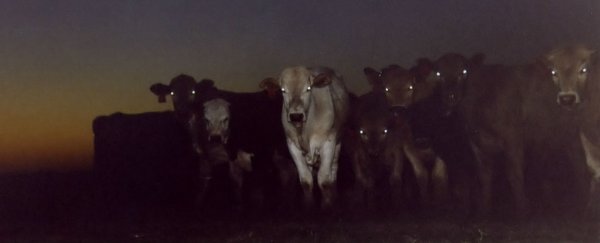If you struggle to fall asleep, you're not alone - according to the Sleep Health Foundation, as many as 1 in 3 of us suffer from some level of insomnia. But researchers in South Korea may have found the unlikeliest of drugs to help ease people into the land of nod: milk collected from cows during the nigh-ttime.
That's right - ordinary milk, but collected at a different time. The team from Sahmyook University in Seoul found that their lab mice were less active than normal when given a dose of 'night milk'. It's believed that the high levels of tryptophan and melatonin in the liquid could be why this occurs - both have already been proven to aid sleep and reduce anxiety when taken as supplements.
The researchers found that the mice fed with night milk were more sluggish, fell asleep faster, and were more inclined to explore open spaces - a measure that indicates reduced anxiety. The effects were comparable to a dose of diazepam, a drug already extensively used to treat anxiety.
As yet, the effects of night milk on humans haven't been rested, but many people already use a glass of milk to try and nod off. By simply switching to milk collected at night, the benefits could be even greater. Melatonin helps to regulate biorhythm in all animals, which is why higher levels of it are found in cows' systems late at night.
Having said that, the idea is not a completely new one. The Guardian reported on a scheme in Germany back in 2010 where night milk was sold as a sleep aid - again, the high levels of melatonin were thought to act as a sleep aid. But there were problems in getting the cows to stay awake and calm enough to produce the quantities of milk required.
There are some experts who are sceptical of the theory of night milk, but Columbia University neurologist Carl Bazil told The Guardian that the study had been conducted in a "pretty responsible way". Bazil said he believes that night milk could be more beneficial as a placebo than anything directly affecting sleep patterns, but admitted that it could also be useful in treatments: "It's not a bad thing. Better than everybody taking Ambien."
What all parties agree on is the need for further testing - particularly on human subjects - to see if night milk can be more beneficial than day milk for those who struggle to fall asleep. Because one thing's for sure: not a whole lot of us could say we're spoiled for sleeping hours right now - we need all the help we can get.
The report has been published in the Journal of Medicinal Food.
